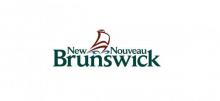FREDERICTON (GNB) – The Department of Education and Early Childhood Development has released the proposed New Brunswick Innovative Immersion Program for students entering kindergarten and Grade 1 in the 2023-24 school year. The department will seek feedback on the framework during consultations this winter.
“The goal of this new program is to have all students graduate with a conversational level of French, at a minimum, with opportunities for enrichment and advanced studies in the French language at the high school level,” said Education and Early Childhood Development Minister Bill Hogan. “French second-language training in the anglophone sector has led to less than half of our high school graduates being able to speak French at a conversational level.”
Starting in September, kindergarten and Grade 1 students will spend 50 per cent of their day engaged in exploratory learning in French to foster strong literacy skills in that language, and the other half being taught in English on subjects such as math, reading and writing.
Allowing for differences in delivery and depending upon the demographics of communities, the framework aims to provide students with early, high-quality instruction using a balanced approach.
The proposed roadmap would have students in the anglophone sector continue spending half of their day being taught in English and the other half in French throughout their elementary school years.
“We want students to practise their French through authentic learning activities and be part of an engaging and fun French language learning environment,” said Hogan. “By beginning in kindergarten, students will receive an earlier start to learning their second language, which is consistent with ‘earlier the better’ research findings.”
Students in Grades 6-8 will spend 60 per cent of their day being taught in English and 40 per cent in French. This includes opportunities for more enriched learning experiences based on their skills and interests. They will continue to be taught math, reading and writing in English.
“As we continue to build upon the proposed framework, we will work with partners to explore more opportunities for our high school students which could include access to university courses, online learning, experiential learning or co-ops, either in-person or virtual,” said Hogan.
The proposed framework was developed based upon discussions with experts, teachers, students and a careful review of reports, research and a number of prototype sites.
As part of the final stage of the consultation process, which began in March 2021, public consultations will begin immediately through an online survey. A series of virtual and in person consultations will also take place throughout January on the proposed framework. The in-person consultation sessions will be held from 6:30 p.m. to 8:30 p.m. on the following dates in the following communities:
- Jan. 17 – Bathurst;
- Jan. 19 – Moncton;
- Jan. 24 – Saint John;
- Jan. 25 – Fredericton.
The virtual sessions will take place Jan. 31 and Feb. 2.
Details will be posted online later and communicated directly to schools and families by the districts in advance of the events.
Students who are entering Grade 2-12 in the fall and were previously enrolled in English Prime, French Immersion or a Language Learning Opportunities initiative, will continue along their current path.
In addition to French second-language training, the proposed framework intends to address concerns relating to imbalances in classroom composition and streaming in the anglophone sector.
“Building a world-class education system to ensure students can reach their full potential is a government priority,” said Hogan. Our new framework will move away from a system that streams students into two separate paths and towards one where every student is supported – no matter where they live or what their learning preferences.”
More information on the proposed framework and on how to participate in the consultation is available on the Evolving French Language Learning website.
15-12-22

